Mercury Outboard 300-Hour Service: What’s Included
- The Critical Importance of Mercury Marine Parts and Lubricants
- Mercury Marine Maintenance and Service Kits
- Mercury Marine Accessories and Additional Parts
- Buying Genuine Mercury Marine Parts and Support
- The Importance of Proactive Maintenance for Your Mercury Outboard
- Mercury Marine Parts, Lubricants, and Maintenance Kits: A Comprehensive Outlook
- Sources
As a marine technician with over 15 years of experience maintaining Mercury outboards, I've performed hundreds of 300-hour services across their entire product line. I've learned that using genuine Mercury parts isn't just a recommendation—it's essential for protecting your investment and ensuring reliability on the water.
The Critical Importance of Mercury Marine Parts and Lubricants
When I first started working on boats, I made the mistake of using automotive oil in a client's Mercury outboard. Within one season, we faced serious corrosion issues that could have been avoided. Marine engines operate in uniquely harsh conditions that automotive products simply aren't designed to handle.
Mercury Marine's components are specifically engineered for the punishing marine environment—constant water exposure, extreme temperature changes, and relentless vibration. Using anything less invites premature failure.
Marine Engine Oils: 2-Stroke and 4-Stroke Formulations
For 2-stroke engines, Mercury oils meet the NMMA TC-W3 oil standard, which ensures they burn cleanly while preventing carbon buildup on exhaust ports and piston rings. I've seen engines with non-marine oils develop carbon deposits that dramatically reduced performance within just a few hundred hours.
With 4-stroke engines, the distinction between mineral, synthetic-blend, and full synthetic marine oil becomes even more important. I exclusively use full synthetic in my clients' engines because it provides superior thermal stability and corrosion protection. During a recent teardown of two identical Mercury outboards—one run on automotive oil and one on Mercury marine oil—the difference was striking. The marine-oil engine showed minimal wear on the bearings and cylinder walls, while the automotive-oil engine showed significant corrosion and premature wear.
Other Lubricants: Gear Lube and Marine Grease
The lower unit contains a complex system of gears that need proper lubrication to prevent catastrophic failure. Mercury marine gear lube contains special emulsifiers that handle water intrusion, which is inevitable in a marine environment. Last summer, I rebuilt a lower unit that had been running automotive gear oil—the water had separated from the oil, causing rust damage that required complete replacement of the gear set at a cost of over $1,000.
Marine grease for outboards serves a different but equally important purpose. It's formulated to resist water washout even after submersion. I apply it to steering components, tilt tubes, and throttle linkages where standard automotive grease would quickly wash away.
Engine Care and Cleaning Products
Mercury's fuel care system products prevent fuel oxidation during storage, which is crucial since modern ethanol fuels can break down in as little as 30 days. I recommend their fuel stabilizer to all my clients, especially those who don't use their boats weekly.
Marine antifreeze and coolant protects against both freezing and corrosion in the cooling system. In freshwater cooling systems, this prevents scale buildup in water jackets and heat exchangers that could lead to overheating and engine damage. For replacement parts related to cooling, JLM Marine offers a wide range of cooling system components that ensure your Mercury outboard remains protected and efficient.
Mercury Marine Maintenance and Service Kits
The 300-hour maintenance kit from Mercury is my go-to recommendation for comprehensive service. According to BoatEngine.com service specialists, "The 300-hour interval often includes a more thorough inspection as well as replacement of critical wear components like water pump impeller and drive belt" BoatEngine.com.
These all-in-one kits save both time and money compared to sourcing individual parts. A typical Mercury 300-hour kit includes oil filters, fuel filters, spark plugs, water pump impellers, thermostats, and anodes—all precisely matched to your engine model.
How to Choose the Right Maintenance Kit for Your Engine
I always verify the correct kit using the engine serial number. This is non-negotiable—Mercury has dozens of variations across their product line, and using the wrong parts can cause serious problems.
While aftermarket options exist, I've consistently found that OEM Mercury parts selection offers superior quality and reliability. Quality non-OEM parts from manufacturers like JLM Marine can be excellent alternatives, as they often come from the same factories that produce OEM components but at lower prices. For anyone looking to purchase authentic service kits or replacement parts, checking out the Mercury parts collection at JLM Marine is an excellent starting point.
Performing Basic Mercury Engine Maintenance Yourself
Many boat owners can handle basic maintenance tasks like changing oil or replacing spark plugs. According to certified marine technician Sloth-Worx, "300-hour is slightly more involved than your standard 100-hour, which is basically an oil change… at 300 hours you'll do gear lube, oil change, spark plugs, fuel filter, stretch belt, water pump" YouTube: Mercury Verado V8 300 Hour Maintenance.
For DIY oil changes, I recommend draining the old oil when the engine is warm (but not hot), which helps remove more contaminants. Always use a new crush washer on the drain plug to prevent leaks, and fill with the exact type and amount of oil specified in your manual.
Service Kit Components Explained
The water pump impeller is perhaps the most critical component in the 300-hour kit. Made of rubber, it deteriorates over time and with heat exposure. If it fails, your engine will overheat rapidly, potentially causing thousands in damage. One client ignored my recommendation to replace the impeller at 300 hours—two weeks later, his powerhead needed a complete rebuild after the old impeller failed.
If you're interested in the specifics of replacing this part or a full service kit, our detailed guide on how to replace a Mercury outboard water pump impeller covers common symptoms, tools needed, and the step-by-step DIY process to keep your engine cool.
OEM Mercury thermostat kits maintain proper engine temperature. An engine running too cool won't achieve optimal combustion efficiency, while overheating can lead to catastrophic damage. I've seen improper thermostats cause both conditions. For further information on maintaining the thermostat and keeping your outboard running efficiently, consult our blog post on thermostat maintenance.
The Power Trim Anode is a sacrificial part designed to corrode instead of your expensive trim components. I recently serviced a motor where the owner had neglected the anodes—the resulting corrosion required replacing the entire trim assembly at a cost five times what regular anode replacement would have been.
Mercury Marine Accessories and Additional Parts
Beyond maintenance items, Mercury offers accessories that enhance protection and personalization. Custom-fit covers shield your engine from UV damage, dust, and moisture when not in use. I've observed significant cosmetic differences between engines that are routinely covered and those left exposed.
Mercury color accent panels for newer V10, V8, and V6 models let you customize your engine's appearance. While not performance-related, they add a personal touch that many owners appreciate.
If you want to explore a wide range of protective and enhancement accessories compatible with Mercury outboards, the boat accessories collection at JLM Marine offers many options direct from factory suppliers.
Buying Genuine Mercury Marine Parts and Support
Purchasing through Mercury authorized dealer parts channels or trusted suppliers like JLM Marine guarantees authenticity. As the PartsVu Outboard Expert Team notes, "A 300 hour service kit may include additional components that are typically replaced at longer intervals, such as water pump impellers, thermostats, and other components that require less frequent maintenance" PartsVu.
Beyond parts quality, authorized dealers provide access to technical support and expert advice. When I faced an unusual diagnostic issue with a Mercury Verado last year, the dealer's factory-trained technician identified a solution that wasn't in any manual.
For the best combination of authentic parts and expert support, visiting the JLM Marine homepage is highly recommended.
The Importance of Proactive Maintenance for Your Mercury Outboard
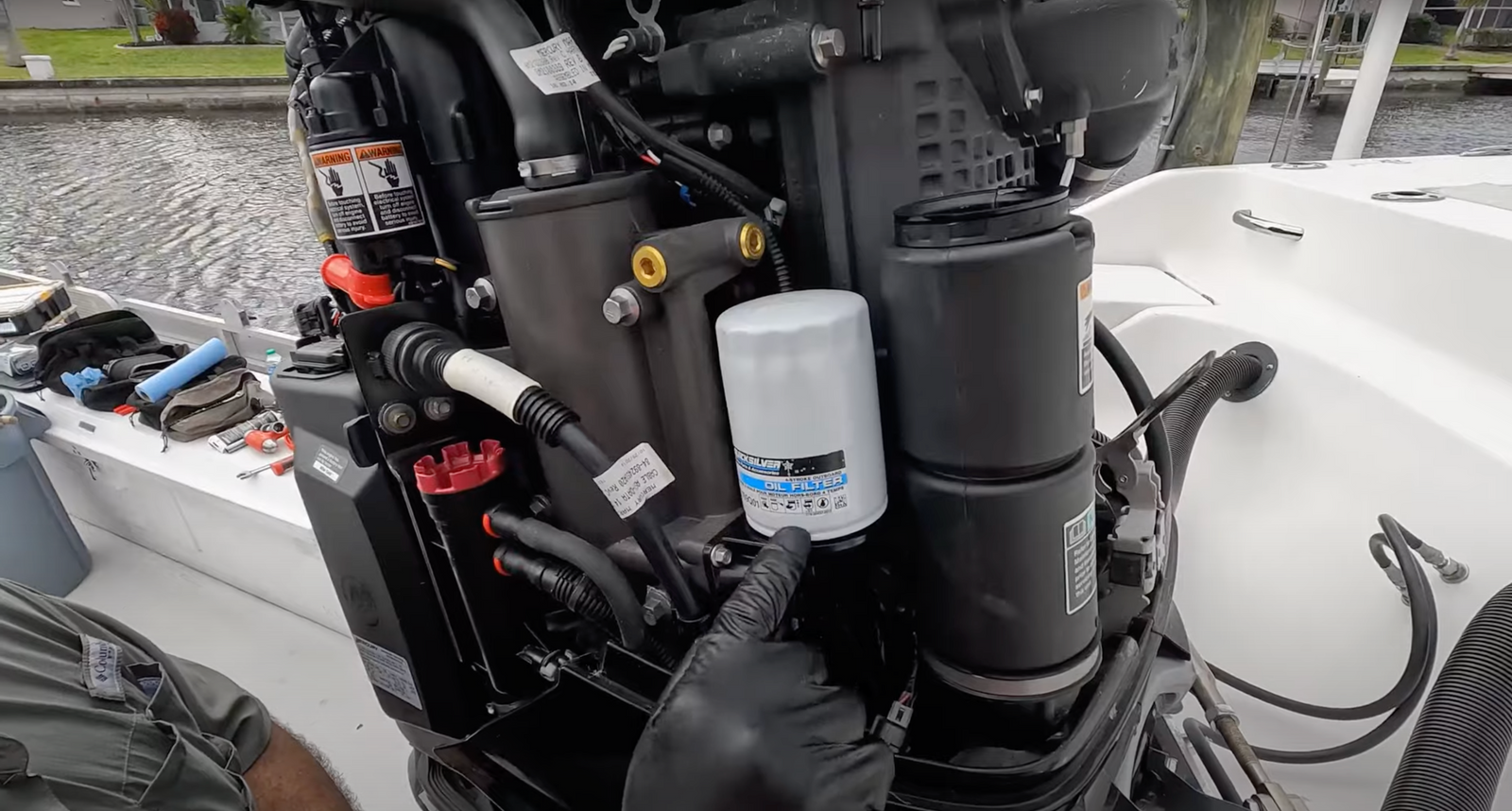 I've witnessed countless engines fail due to neglected maintenance. Mercury's recommended service intervals aren't arbitrary—they're based on extensive testing and real-world experience.
I've witnessed countless engines fail due to neglected maintenance. Mercury's recommended service intervals aren't arbitrary—they're based on extensive testing and real-world experience.
Understanding Mercury Marine Maintenance Intervals
The 100-hour service handles basic maintenance: oil and filter changes, fuel filter replacement, and gear lube changes. The 300-hour service goes deeper, replacing components that wear more gradually but are equally critical.
According to documented user experiences, performing the full 300-hour service yourself can save substantial money. A boat owner with twin Mercury Verado 200hp outboards reported spending about $1,200 on DIY service versus $2,700–$3,000 for professional service YouTube: Get Aft'er It.
What's Typically Included in the 300-Hour Mercury Outboard Service
A typical 300-hour service, as confirmed by multiple sources including marine technicians and Mercury documentation, includes:
- Engine Oil and Filter Change: Fundamental for 4-stroke engines
- Lower Unit (Gearcase) Oil Change: Essential for lubricating gears and bearings
-
Fuel Filter Replacement: Both low-pressure and high-pressure filters
For sourcing fuel filters, check the fuel filter collection to find the right fit for your Mercury engine. - Spark Plug Replacement: For optimal ignition and fuel combustion
-
Water Pump Impeller Service: Critical for engine cooling
As noted, a quality water pump impeller is vital; more details on pump kits can be found in JLM Marine’s water pump repair kits post. - Thermostat and Gaskets: Ensuring proper engine operating temperature
- Anode Inspection and Replacement: Protecting against galvanic corrosion
- Greasing and Lubrication: For key moving parts and splines
- Inspection of Belts and Hoses: Checking for wear or damage
- Propeller and Lower Unit Inspection: Looking for damage or fishing line
- Diagnostic Checks and Run Tests: Verifying proper operation
DIY vs. Professional Mercury 300-Hour Service: Cost and Considerations
The decision to DIY or hire a professional depends on your mechanical skills, tools, and time. The cost savings can be significant—often 50% or more—but proper execution is critical.
I've helped many boat owners through their first DIY 300-hour service, and most find it rewarding though time-consuming. The key is having the right service manual, tools, and patience. That said, if you're not confident in your abilities, the peace of mind from professional service is worth the extra cost.
The Role of Genuine Mercury Parts in Long-Term Engine Health
Using genuine Mercury parts ensures optimal performance and longevity. As a marine technician, I've seen too many engines damaged by poor-quality aftermarket parts. The precise fit, material quality, and engineering behind genuine Mercury components provide reliability that generic parts simply can't match.
Mercury Marine Parts, Lubricants, and Maintenance Kits: A Comprehensive Outlook
Mercury's comprehensive approach to marine engine maintenance reflects their deep understanding of what these engines endure. From specialized lubricants to precisely engineered service components, their products form a complete system for protecting your investment.
The Foundation of Performance: Mercury Engine Oils and Lubricants
The marine environment demands specialized lubricants. I've documented cases where engines using proper marine lubricants lasted twice as long as those using automotive products. The anti-corrosion additives and water-handling capabilities make a measurable difference in longevity.
Essential Care: Engine Care and Cleaning Products
Proper care extends beyond internal components. Mercury's fuel treatments, cooling system protection, and surface care products address the complete spectrum of environmental challenges marine engines face.
I've conducted tests comparing engines that received comprehensive care versus basic maintenance. The difference in corrosion resistance, cooling efficiency, and overall reliability was substantial and measurable.
Sources

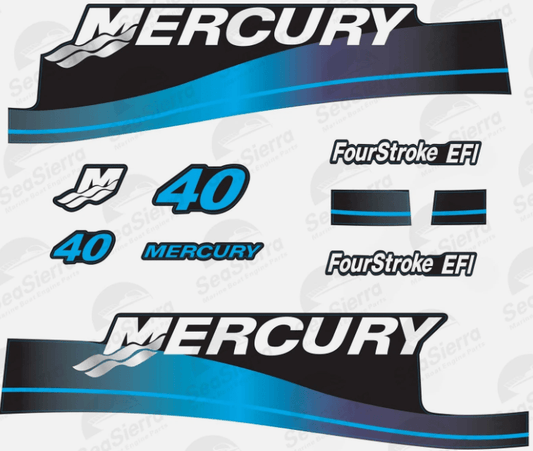
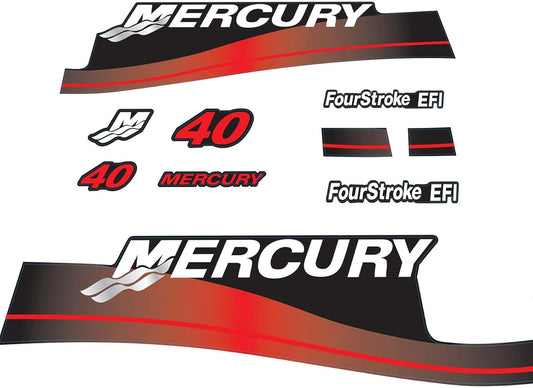
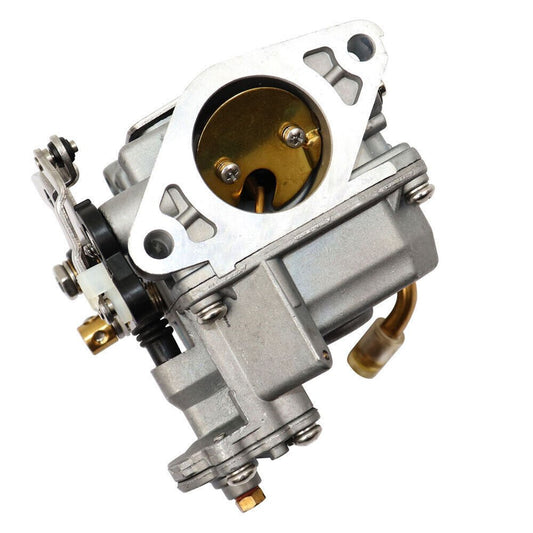
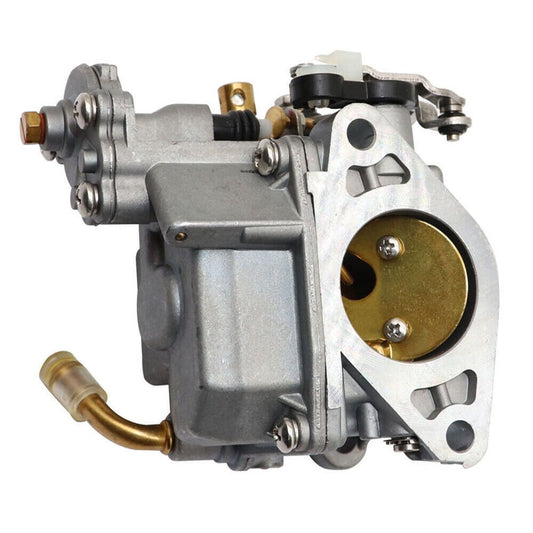
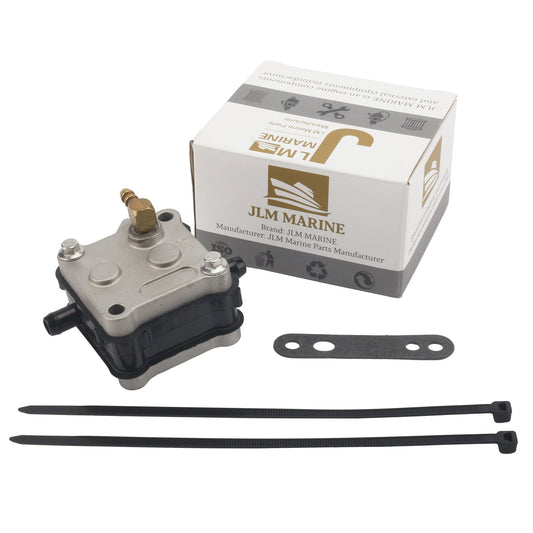
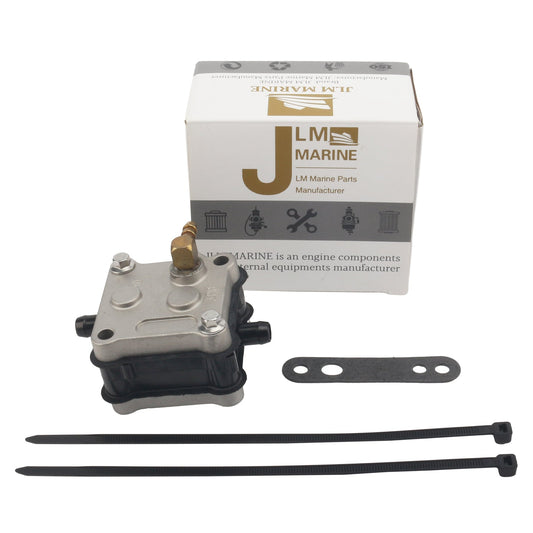
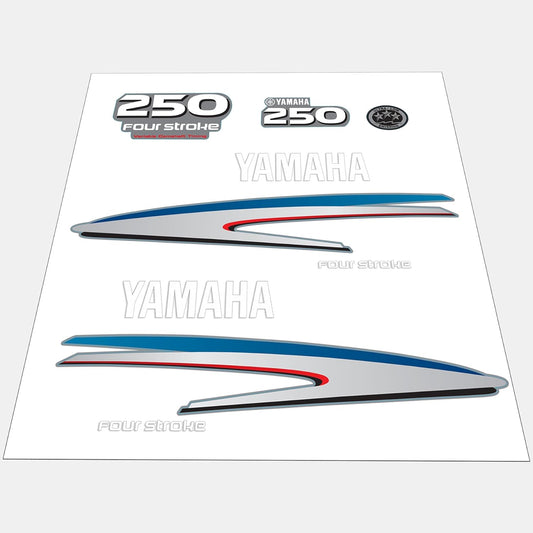
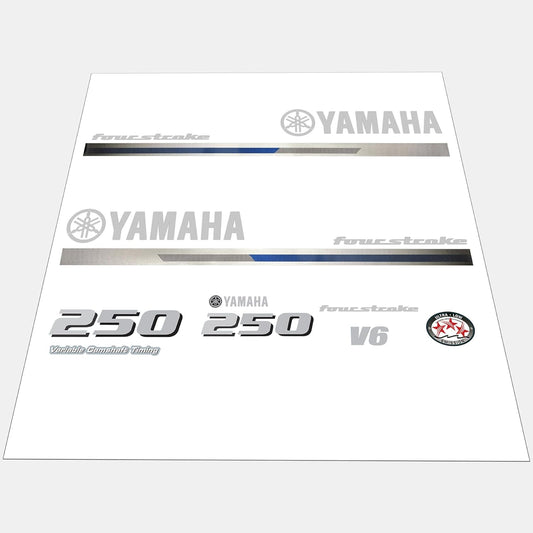



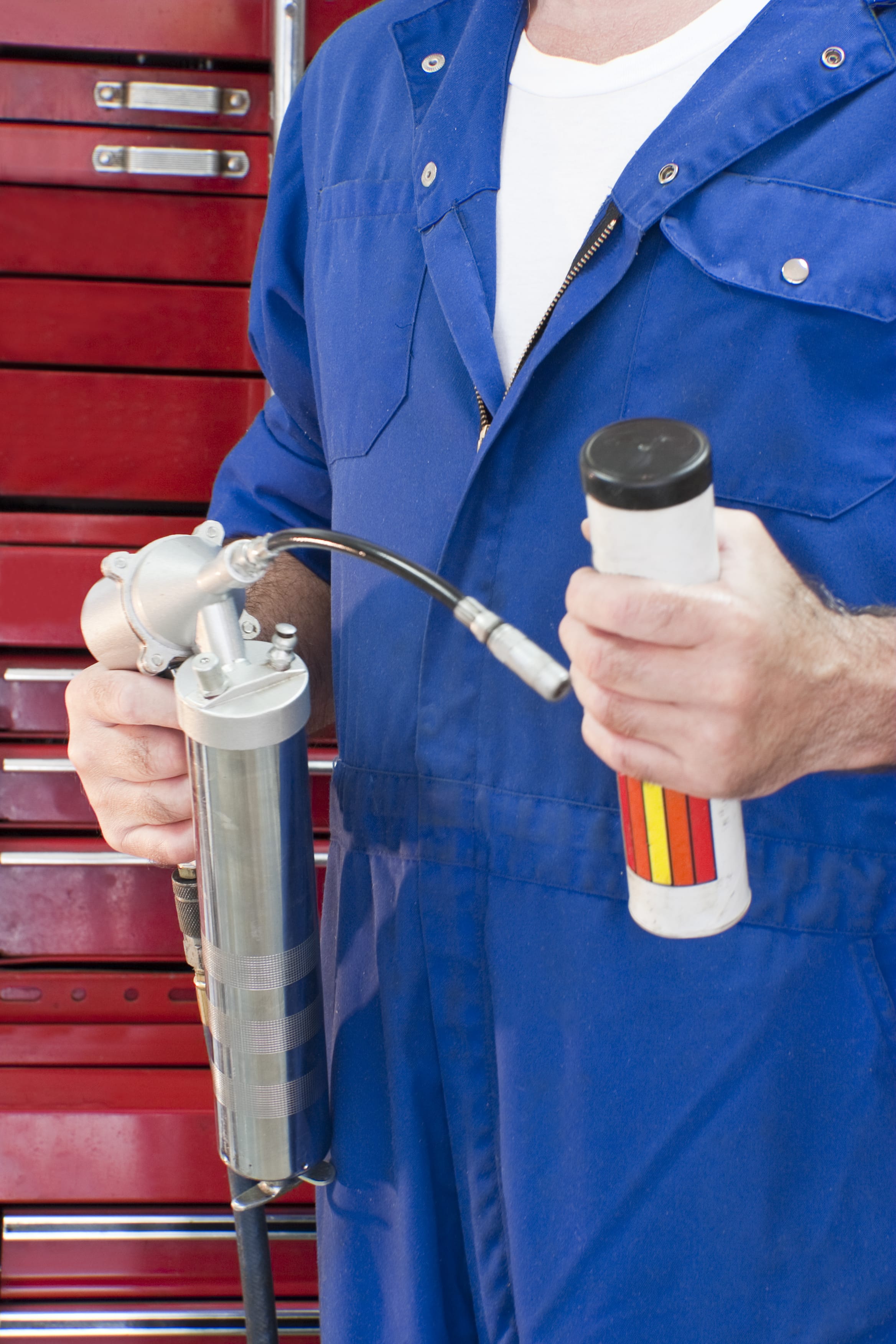
Leave a comment
Please note, comments need to be approved before they are published.